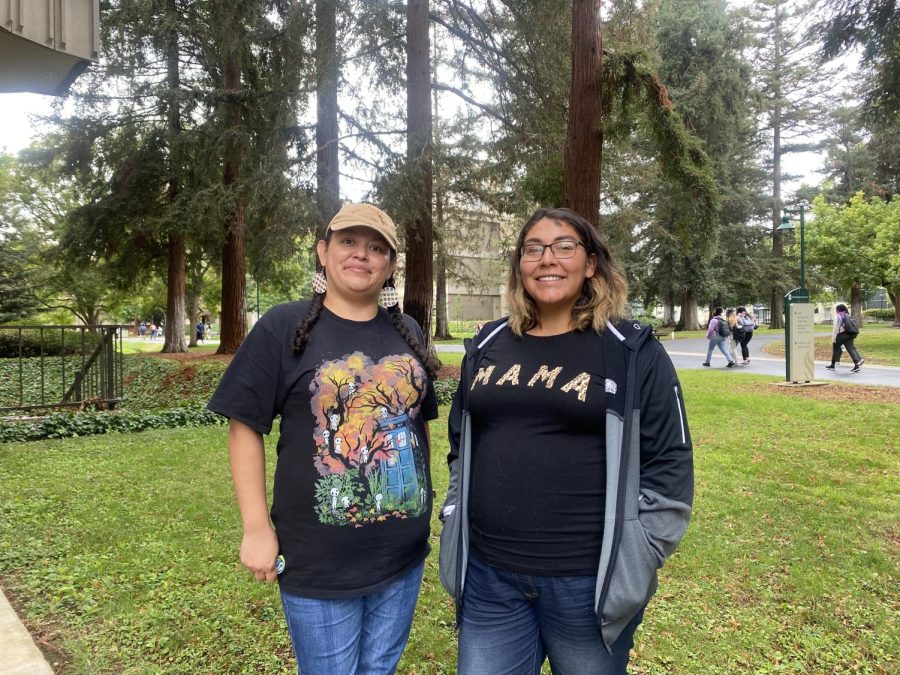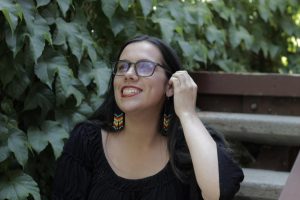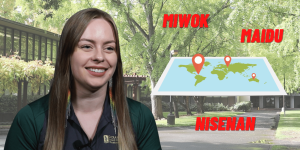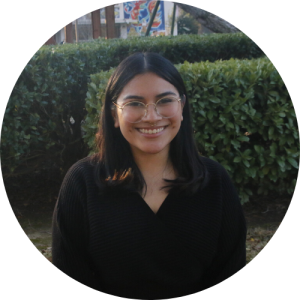’A beacon for Native students’: Ensuring Native Indian Traditions
A club for ‘allies and Indigenous students’
Ensuring Native Indian Traditions board members Maria Elena Pulido-Sepulveda (left) and Pauline Ghost-Perez (right) stand outside the multicultural center after their Orange T-shirt day workshop on Sept. 21, 2022. Orange T-shirt day is held on Sept. 30 to commemorate the children who experienced the residential school system and honor those who survived it.
October 3, 2022
A club for Native scholars with the resources necessary to succeed. The Ensuring Native Indian Traditions (ENIT) club helps Native students feel welcomed on campus, according to the club’s secretary, Maria Elena Pulido-Sepulveda.
The ENIT club, formerly known as the Native American Student Alliance (NASA), works closely with the American Indian Student Success Collective, which was established to guide native students through their academic journey at Sac State.
The club’s purpose is to promote higher learning for Indigenous groups and foster a sense of community at Sac State. ENIT offers distinctive resources like culturally appropriate mental health and wellness discussions and academic advising; it is currently made up of 14 active members.
ENIT also has a discord that members use to share opportunities, scholarships and information about issues affecting Indigenous communities.
Story continues after the image.
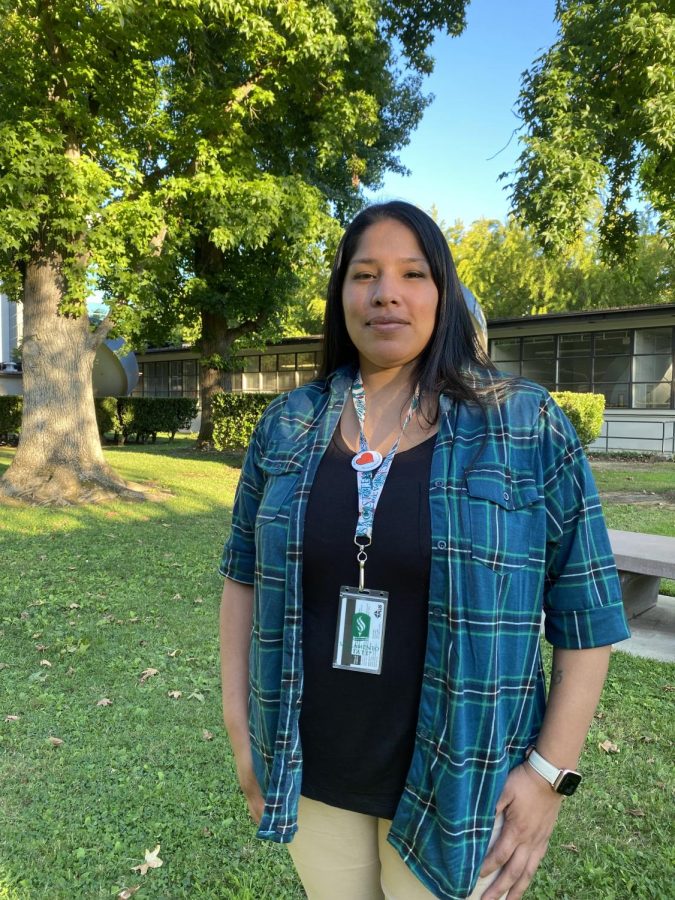
Estela Cuevas, 39, from the Northfork Mono and Yokut of the Chukchansi band, serves as the club’s president. Cuevas is a social work major and joined ENIT in 2020.
“I joined during the pandemic, which was very lonely,” Cuevas said. “I remember the connection I had when I was in and out of cultural clubs; I wanted to feel more connected to the Sac State campus.”
Her role as president consists of appointing club members to chairs and hosting meetings. She also collaborates with the Native American Health Center, Tribal Temporary Assistance for Needy Families and various rancherias in an effort to expand the Native community on campus.
“Being president was a bit shaky, but I usually put myself in these uncomfortable positions so I can grow academically,” Cuevas said.
Cuevas said the upcoming launch of the Esaḱtima Center this fall will have a computer lab, workshops and additional resources. She feels supported by the university but acknowledges that there is still room for improvement.
The ENIT club is continuing its effort to sustain mental health and wellness through collaboration with native allies like the Native Scholars and Transition Program (NSTP), according to Cuevas. She said support from the university gives her hope for future success.
Story continues after the image.
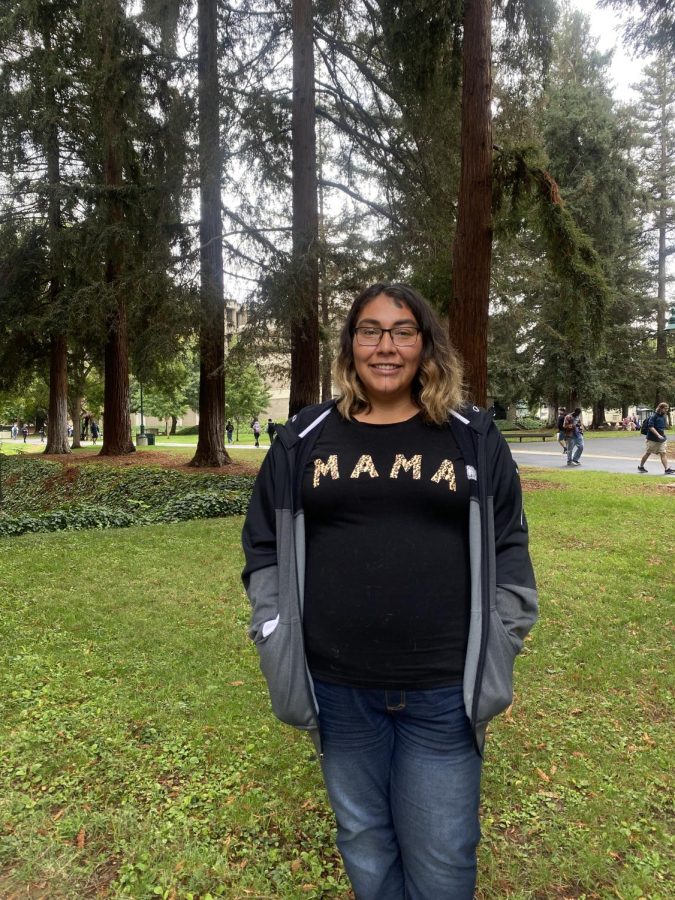
Pauline Ghost-Perez, 31, from the California Miwok and North Dakota Oglala Lakota tribe, serves as the club’s vice president and treasurer. She is a senior majoring in ethnic studies with a concentration in Native American studies. Ghost-Perez joined ENIT hoping to get out of her comfort zone and be more active on campus.
“Growing up in middle and high school, there weren’t many clubs or organizations to join. I struggled trying to find a place where I belong. I never found it,” Ghost-Perez said.
Ghost-Perez said her responsibilities as the vice president include presiding over the club when the president is absent and ensuring officers are fulfilling their duties.
Story continues after the image.
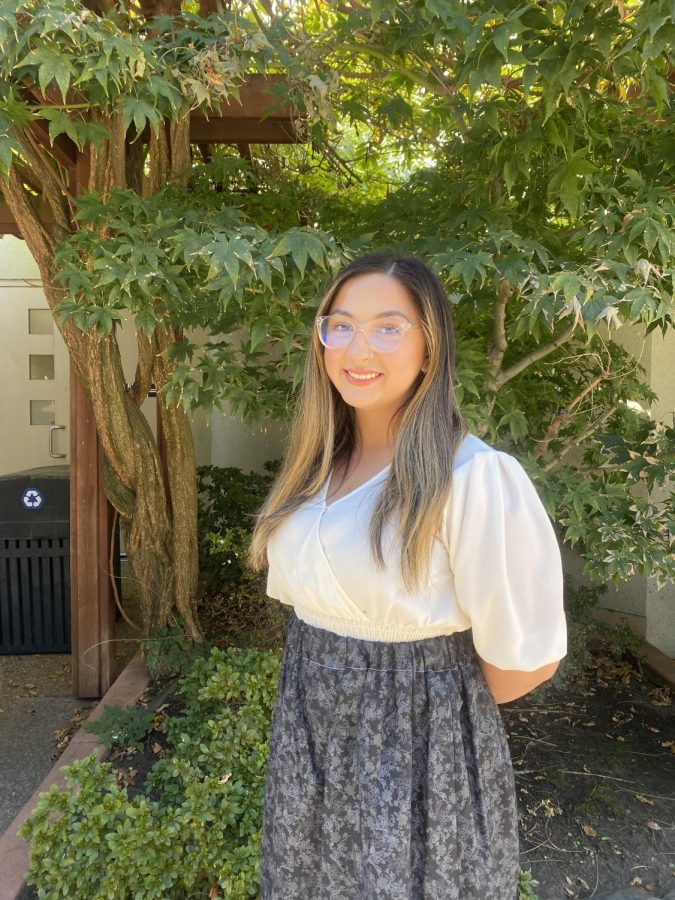
Hannah Corbett, 22, of the Cow Creek Band of Umpqua, is a 5th year student who joined as a member this fall. She is a nutrition and food major and plans to graduate in the spring.
“This is the first time that I found out there was a Native American club on campus,” Corbett said
Corbett said that she felt welcomed by the club and recounted that when an elder led the welcoming ceremony at the first ENIT meeting of this year.
“I thought it was really unique that culture is incorporated in our meetings,” Corbett said.
Corbett said she appreciates that resources and opportunities are growing for Native and Indigenous students, but she wishes to have found them sooner.
“It’s a little frustrating because it took so long for me to plan my academic goals. I had to ask multiple advisors for help.” Corbett said. “I’m hoping that the club and the center [Esaḱktima Center] will be able to help me more.”
Story continues after the image.
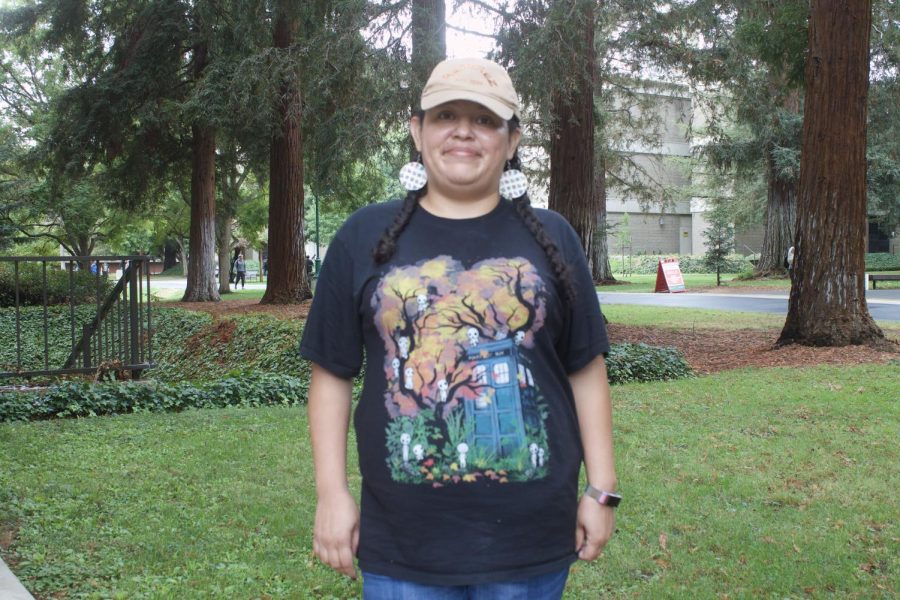
Maria Elena Pulido-Sepulveda, 40, is a descendant of the Caxcan Otomí tribe and serves as the club’s secretary. She is a sociology major and joined ENIT in 2020.
Pulido-Sepulveda said when she transferred to Sac State, Enit was her first hornet family and the club is a good place to find a community for Native students.
Pulido-Sepulveda said she wanted to ensure there is a beacon for Native students to know they have a place on campus. She said being put into a box is an experience she hopes other Native students do not have to go through in the ENIT club. Her goal is to make ENIT a place other students can refer to as their home.
“As a sociology major, I know that these institutions are not built for us. They can be very dismissive,” Pulido-Sepulveda said. “I am not saying that they are set up for you to fail but it’s really hard if you don’t know about resources.”
For Native students, ENIT provides cultural competent ways to address mental health that can’t be find elsewhere at Sac State, according to Pulido-Sepulveda.
“We have talking circles, which is really important,” she said.“I know that The Well provides mental health services but culturally appropriate mental health services for all people of different groups is important because we don’t all share in the same ways.”
Amanda Croteau, 22, is an enrolled tribal citizen of the Cherokee Nation. She graduated in the spring of 2022 with a degree in Earth science and is pursuing her masters degree in biology at Sac State.
Croteau has been a member of ENIT since 2019 and served as president during the pandemic. She continues to be a participating member.
“It was very difficult to get students to engage, “ Croteau said. “The virtual environment just was not meant for them in terms of connecting to peers.”
Croteau said that recruiting members for ENIT has its challenges.
“The Indigenous population is extremely small and usually that group will want to join because it brings a sense of community,” Croteau said. “But as far as students outside the Indigenous community, they don’t necessarily want to join because they don’t know if it’s a space for them and they don’t want to intrude. It’s meant for allies and Indigenous students.”
Croteau said the university could do better by making Native students feel more supported and involved. As a stem student, Croteau feels that the Indigenous perspective in the curriculum needs to be implemented.
“I have tried to push for the geology and biology departments to use land acknowledgments in their syllabi,” Croteau said. “As far as I know, we do not have any Native faculty in those departments.”
As a member of ENIT, Croteau has stressed that if allies join, it would help the club’s mission of spreading Indigenous knowledge on campus.
“There is a stigma that you have to be a California native to join, which is not the case. Most of our students are not California Native,” Croteau said. “I just want them to know they can join because it’s a great resource and a great way to connect with people with similar cultures.”






























































































































